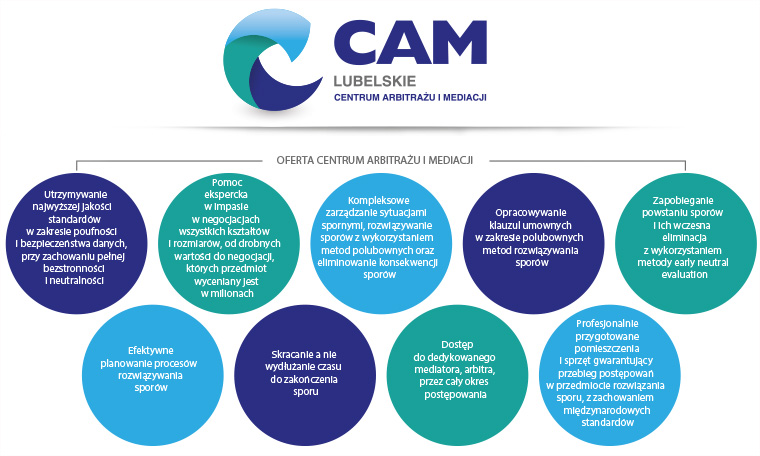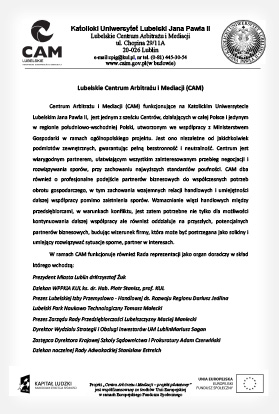
The Centre for Arbitration and Mediation (CAM) is one of the six Centers of the kind in Poland, launched in cooperation with the Polish Ministry of Economy. It is independent of any external influences and it guarantees complete neutrality and impartiality. CAM encourages and promotes a professional approach of business partners to contemporary requirements of trade and commerce, including fostering good mutual business bonds and developing the prospects for future cooperation irrespective of the disputes.
Our Offer
CAM offers leading solutions in the field of ADR, with the particular focus on mediation, arbitration and the early assessment of the risk of dispute emergence. CAM gathers experts, lawyers, entrepreneurs and mediators with long-term international practical expertise in dispute resolution, irrespective of the scope: from small claims to multimillion cases. Their presence in CAM is a guarantee of the highest quality of the service.
The mission of the Centre for Arbitration and Mediation is to support and help entrepreneurs solve disputes related to all types of their activity with the use of the methods of amicable dispute resolution. Also, the mission covers creating and allowing access to the mechanisms of preventing, minimizing and solving disputes, so as to reduce the risk of disputes or eliminate the negative impact of their emergence.




 Terms of CAM
Terms of CAM 






